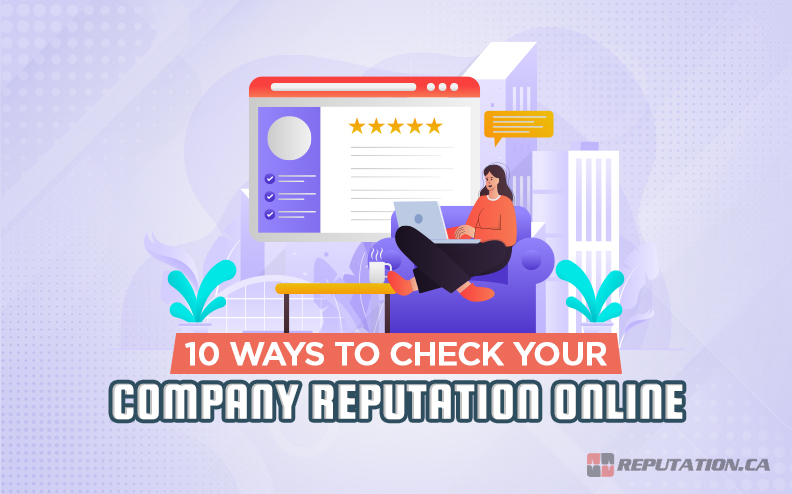The Ultimate Guide to Employer Reputation Check: Why It Matters for Your Business
In today’s competitive job market, an employer’s reputation plays a crucial role in attracting and retaining top talent. Employer reputation is not just about how your company is perceived by the public but also by potential employees and the workforce. A strong reputation can lead to increased interest from high-quality candidates, while a poor reputation can make it difficult to fill key positions. In this guide, we’ll explore the importance of performing an employer reputation check, how it impacts your business, and the steps you can take to improve your company’s image.

What is an Employer Reputation Check?
An employer reputation check is a process of evaluating how your company is perceived by current and former employees, job candidates, and the public. It involves looking at employee reviews, ratings, feedback on job boards, and social media conversations about your company. This check gives you valuable insights into your company’s strengths and areas for improvement when it comes to your employment practices.
Why is Employer Reputation Important?
A solid employer reputation is essential for several reasons:
1. Attracting Top Talent
In a world where skilled workers have numerous options, a good reputation helps you stand out. Candidates are more likely to apply to a company that has positive reviews about its workplace culture, benefits, and opportunities for career growth.
2. Employee Engagement and Retention
When employees are proud to work for a company with a strong reputation, they are more likely to stay long-term. A positive reputation also boosts employee morale and engagement, making them more productive and loyal.
3. Building Trust with Stakeholders
Your employer reputation extends beyond job candidates and employees. Customers, business partners, and investors are also influenced by how the public perceives your company. A positive reputation can build trust and create long-lasting relationships with all your stakeholders.

How to Perform an Employer Reputation Check
Performing an employer reputation check is essential to understanding how your company is perceived. Here are some key steps to consider:
1. Evaluate Employee Reviews on Job Boards
Start by reviewing employee feedback on popular job boards like Glassdoor, Indeed, and LinkedIn. These platforms allow current and former employees to rate their experience, providing an honest reflection of your company culture and hiring process. Take note of recurring themes, both positive and negative, and identify areas where you can improve.
2. Monitor Social Media Mentions
Social media platforms like Twitter, Facebook, and Instagram can reveal how people perceive your company. Monitor these platforms for mentions of your company name and track public sentiment. Responding to comments or addressing concerns on social media can improve your image and show that you are listening to your audience.
3. Conduct Employee Surveys
Regular surveys are a great way to gather direct feedback from your current employees about their experience at your company. Ask about workplace culture, management practices, career growth opportunities, and any areas that need attention. This proactive approach helps you identify potential issues before they become significant problems.
4. Review External Reputation
Look at how your company is portrayed in the media and on external review sites. News articles, blogs, and industry publications can impact your reputation. Regularly checking external sources will give you a more holistic view of your employer reputation.

Common Mistakes to Avoid When Checking Employer Reputation
It’s important to approach the process of an employer reputation check with a balanced mindset. Avoid these common mistakes:
1. Ignoring Negative Feedback
It’s tempting to dismiss negative feedback as a few disgruntled employees, but ignoring it can lead to long-term consequences. Negative feedback provides an opportunity for improvement and can be used to make necessary changes to your hiring practices, management style, or company culture.
2. Not Responding to Reviews
Failing to respond to reviews, both positive and negative, can leave a poor impression. Candidates and employees expect companies to engage in open conversations. Acknowledge feedback, thank people for their input, and outline steps you’re taking to address concerns.
3. Focusing Only on Ratings
While ratings are important, they don’t always tell the full story. Take time to read the actual reviews and comments to understand the context behind the ratings. This deeper understanding can help you make informed decisions about how to improve.
4. Not Being Transparent
Transparency is key to maintaining a positive reputation. If your company is facing challenges, be upfront about them and communicate what you’re doing to resolve issues. Candidates appreciate honesty, and it helps build trust.
How to Improve Your Employer Reputation
Improving your employer reputation takes time and consistent effort. Here are some strategies to help you build and maintain a strong reputation:
1. Foster a Positive Company Culture
A positive company culture is the foundation of a great employer reputation. Encourage open communication, respect, and inclusivity. Promote work-life balance and provide opportunities for career development to show that you value your employees.
2. Offer Competitive Benefits and Compensation
Employees are more likely to speak highly of a company that provides fair compensation and valuable benefits. Regularly review your salary packages and ensure they align with industry standards. Offer benefits that promote employee well-being, such as health insurance, retirement plans, and flexible work hours.
3. Provide Opportunities for Career Growth
A reputation for offering career advancement opportunities will attract ambitious candidates. Create clear paths for growth and development, offer training programs, and encourage internal promotions.
4. Recognize and Reward Employees
Recognize and celebrate employee achievements, whether big or small. Implement employee recognition programs that highlight individual and team successes. This helps employees feel valued and fosters loyalty.
5. Improve Your Hiring Process
The hiring process is the first touchpoint between your company and potential employees. Ensure it is fair, transparent, and efficient. Communicate clearly with candidates at every stage of the process and provide timely feedback.
FAQs about Employer Reputation Check
1. How often should I conduct an employer reputation check?
It’s recommended to conduct an employer reputation check at least once a quarter. This allows you to stay on top of any changes in sentiment and address issues before they escalate.
2. Can employer reviews impact my ability to hire?
Yes, a poor employer reputation can make it difficult to attract top talent. Candidates often research companies before applying, and negative reviews can deter them from applying to your company.
3. How can I use employer reputation feedback to improve my business?
Use feedback to identify areas where your company can improve. Whether it’s refining your hiring process, improving employee benefits, or fostering a more inclusive culture, feedback is a valuable resource for continuous improvement.
4. What if I receive mostly negative reviews?
Don’t panic. Use negative reviews as an opportunity to learn and grow. Acknowledge the feedback, outline steps to address concerns, and make visible changes to improve the employee experience.
Conclusion
Performing an employer reputation check is essential for any business that wants to stay competitive in the job market. A positive employer reputation attracts top talent, enhances employee satisfaction, and improves overall business success. By consistently monitoring feedback, addressing concerns, and making necessary improvements, you can build a reputation as a great place to work. Remember, a strong employer brand is not just a marketing tool—it’s a key factor in your company’s long-term success.




